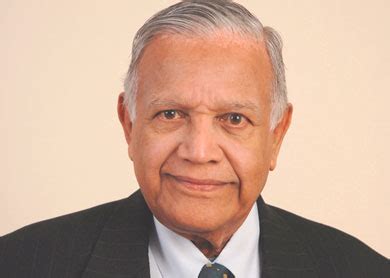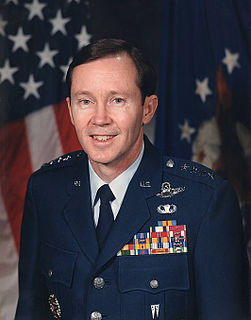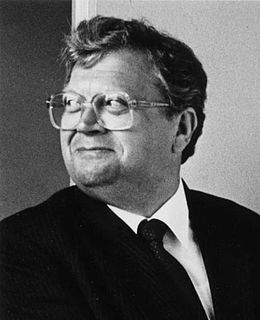Ein Zitat von Judy Woodruff
Trump sagte heute, dass, wenn Länder über Atomwaffen verfügen sollen, die Vereinigten Staaten ganz hinten stehen müssten, was in seinen Worten bedeutete, dass das US-Atomwaffenarsenal aufgestockt werden müsse.
Themen zitieren
Verwandte Zitate
Im Wesentlichen sagten [die Vereinigten Staaten und Frankreich]: „Wir werden Atomwaffen einsetzen, wann immer es unseren Zielen entspricht.“ Diese Ausweitung der Doktrinen bezüglich des möglichen Einsatzes von Atomwaffen macht diese also irgendwie bedeutsamer und wichtiger, und so erhöht sie den wahrgenommenen politischen Wert von Atomwaffen und führt daher zu einer möglichen Verbreitung oder trägt zu dieser bei.
Das Schlimmste an dem, was wir Donald [Trump] sagen hörten, war über Atomwaffen. Er hat wiederholt gesagt, dass es ihm egal sei, ob andere Nationen, Japan, Südkorea oder sogar Saudi-Arabien, Atomwaffen hätten. Es war die Politik der Vereinigten Staaten, der Demokraten und der Republikaner, alles zu tun, um die Verbreitung von Atomwaffen einzudämmen.
Am 20. Januar 2017 wird Trump als 45. Präsident der Vereinigten Staaten vereidigt und erhält die Nukleargesetze sowie die Befugnis, das US-Atomwaffenarsenal zu starten, das rund 7.000 Atomwaffen umfasst. Ein Militäroffizier wird immer in Trumps Nähe sein und die Nuklearcodes in einer Aktentasche namens „Football“ bei sich tragen.
Was ist die einzige Provokation, die zum Einsatz von Atomwaffen führen könnte? Atomwaffen. Was ist das vorrangige Ziel für Atomwaffen? Atomwaffen. Was ist die einzige etablierte Verteidigung gegen Atomwaffen? Atomwaffen. Wie verhindern wir den Einsatz von Atomwaffen? Durch die Drohung, Atomwaffen einzusetzen. Und wir können Atomwaffen nicht loswerden, wegen Atomwaffen. Die Unnachgiebigkeit scheint eine Funktion der Waffen selbst zu sein.
Ich möchte den Begriff „Atomwaffen“ nicht verwenden, weil die Autoritätspersonen im Iran sagen, dass sie keine Atomwaffen bauen. Ich appelliere an die Länder, die über Atomwaffen verfügen. Sie betrachten sie nicht als nukleare Bedrohung. Aber nehmen wir an, ein Land, das keine Atomwaffen hat, beteiligt sich am Bau dieser Waffen, dann wird ihnen von denjenigen, die bereits über Atomwaffen verfügen, gesagt, dass sie [eine solche Entwicklung] ablehnen. Wo ist da die Gerechtigkeit?
Eine der größten Sorgen, die ich hatte, als ich Präsident wurde, war die enorme Vielfalt an Atomwaffen in den Arsenalen der Vereinigten Staaten, der Sowjetunion und einiger anderer Länder sowie die starke Verbreitung konventioneller Waffen, nichtnuklearer Waffen, Dies stellt insbesondere eine enorme Belastung für die Volkswirtschaften von Entwicklungsländern oder sehr armen Ländern dar.
Die Quintessenz bei Atomwaffen ist, dass der Befehl des Präsidenten befolgt werden muss. Zwischen der Erteilung des Befehls und dem Abschuss der Atomwaffen durch die Verantwortlichen vergehen etwa vier Minuten. Und deshalb sind zehn Menschen, die diese gewaltige Verantwortung getragen haben, zu Wort gekommen und haben auf beispiellose Weise erklärt, dass sie Donald Trump die Nukleargesetze nicht anvertrauen würden oder dass er seinen Finger auf den Nuklearknopf legen würde.
Die unbekümmerte, beiläufige Art und Weise, wie Donald Trump über Atomwaffen spricht, ist nicht nur beängstigend, sondern steht auch im Widerspruch zu mehr als 70 Jahren parteiübergreifender Präsidentschaftsführung von Republikanern und Demokraten, die glaubten, wir müssten verhindern, dass andere Länder Atomwaffen bekämen, und das müssten wir auch Wir tun unser Möglichstes, um die Zahl der Atomwaffen weltweit zu verringern.
Aber eine Beseitigung wird nur dann gelingen, wenn alle Länder – Nuklear- und Nichtnuklearstaaten – wirklich auf dieses Ergebnis hinarbeiten. Nuklearstaaten müssen ihre Arsenale abschaffen, wie aus der einstimmigen Stellungnahme des Internationalen Gerichtshofs, dem höchsten internationalen Tribunal, hervorgeht. Die fünf Nuklearstaaten scheinen von anderen zu erwarten, dass sie auf die Beschaffung von Bomben verzichten und gleichzeitig ihre eigenen Vorräte an tödlichen Waffen unterhalten.
Es liegt in erster Linie bei den Vereinigten Staaten, die die vorherrschende Atommacht waren, die Führung bei der Reduzierung zu übernehmen und ihrer unterzeichneten, besiegelten und ratifizierten Verpflichtung in Artikel 6 des Atomwaffensperrvertrags aus dem Jahr 1968 nachzukommen um dieses Atomwaffenarsenal zu beseitigen. Das ist eine ernsthafte internationale Verpflichtung.
Das Gericht war nicht in der Lage, über alle Umstände zu entscheiden, unter denen Atomwaffen eingesetzt werden könnten, und entschied angesichts der Probleme, der Risiken, die Atomwaffen mit sich bringen, und angesichts der mangelnden Rechtssicherheit unter allen Umständen für das Beste Selbstverständlich wird die im Atomwaffensperrvertrag enthaltene Verpflichtung zu redlichen Verhandlungen über nukleare Abrüstung erfüllt.
Soweit der US-Geheimdienst weiß, entwickelt der Iran nukleare Kapazitäten, aber sie wissen nicht, ob sie versuchen, Atomwaffen zu entwickeln oder nicht. Die Chancen stehen gut, dass sie die sogenannten „nuklearen Fähigkeiten“ entwickeln, über die viele Staaten verfügen. Das ist die Fähigkeit, über Atomwaffen zu verfügen, wenn sie sich dazu entschließen. Das ist kein Verbrechen.





























